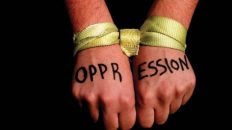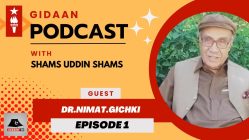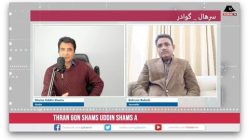Language Death is a remarkable book written by the British linguist David Crystal, published in the year 2000. David Crystal is widely known for his outstanding contributions to the study of language. His scholarship extends across various fields of linguistics, and he has written over 120 books. Some of his most influential works include Language Death, Internet Linguistics, English Language Learning, and The Cambridge Encyclopedia of Language.
His writings have left a lasting impact on how language is viewed and valued in the modern era.
Among his many works, Language Death stands out as one of his most significant contributions. In this book, Crystal emphasizes the importance of one’s language, arguing that language is not merely a collection of words and grammatical rules but a living expression of culture. It embodies the history, traditions, and achievements of a people.
Losing a language, therefore, means losing an irreplaceable part of human heritage.
The book revolves around five main questions that shape its central discussion:
• What is language death?
• Why should we care?
• Why do languages die?
• Where do we begin?
• What can be done?
1. What is language death?
In answering this question, Crystal explains what it truly means for a language to “die.” He notes that languages rarely disappear suddenly; instead, they go through gradual stages of decline. At first, speakers may lose pride or prestige in their native tongue, turning instead to more dominant languages that promise better opportunities. Eventually, only the elder generation continues to speak it, while younger people adopt the dominant language a stage known as language obsolescence.
For Crystal, a dying language also represents a loss of identity for its speakers. Language death seldom occurs naturally; rather, it is often caused by political dominance, cultural pressure, and economic inequality. When people are forced to migrate or adapt for survival, they may abandon their native language and with it, a vital sense of belonging.
2. Why should we care?
Crystal argues that every language carries a unique worldview and perspective. When a language disappears, humanity loses not only a form of communication but also distinct knowledge, customs, and wisdom that exist nowhere else. Each language expresses a way of thinking and understanding the world; therefore, the death of a language is the death of a unique human experience.
3. Why do languages die?
In exploring this question, Crystal identifies several key causes primarily social, economic, and political factors. Throughout history, colonization, migration, urbanization, and globalization have all played major roles in language loss.
Under colonial rule, communities were often pressured or forced to abandon their native tongues in favor of those of the ruling powers. In today’s globalized world, people often choose dominant languages to secure better education, employment, and status, leading to further decline of minority languages.
4. Where do we begin?
Crystal suggests practical ways to revive and maintain endangered languages. He cites successful examples such as Welsh and Hawaiian, which have been revived through education, community involvement, and broadcasting. He stresses that native languages must be used in schools, homes, and media, and also promoted through technology and the internet.
Governments, he argues, have a major role to play by funding programs and recognizing local languages officially.
5. What can be done?
Finally, Crystal emphasizes the importance of documentation and preservation. Languages should be recorded through their stories, grammar, and vocabulary before they disappear completely.
He also urges the use of modern technology to keep languages alive through digital archives, apps, and online platforms. Most importantly, he advocates for bilingualism, allowing people to value both global and local languages without sacrificing their linguistic identity.
Overall, Language Death delivers a powerful message: saving a language means saving a culture, a history, and a way of thinking. Crystal reminds readers that language preservation is not only a linguistic issue but also a human one.
Every person and nation should recognize the worth of their language as part of their identity and pride. As Crystal suggests, linguists, governments, and communities must work together to raise awareness and take action because when a language dies, a part of humanity dies with it.








Add comment